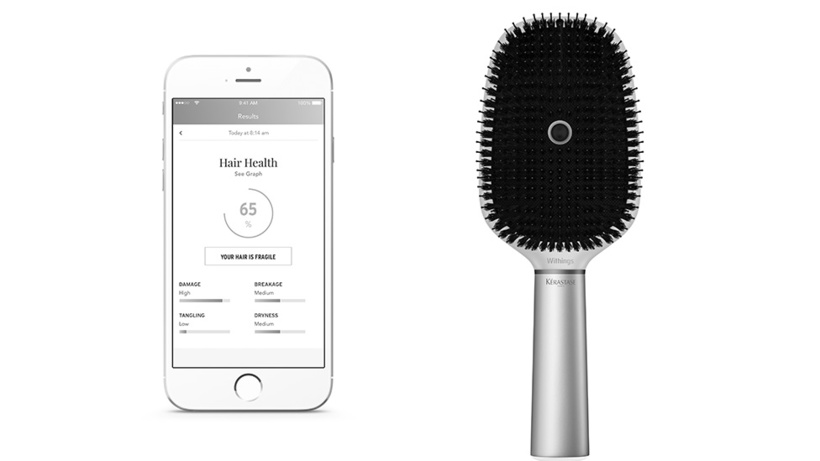The smart hairbrush is not as dumb as it sounds


The Kérastase Hair Coach
In the beginning, there were smartphones, and they were good. We then had smart TVs and smartwatches. They were okay, at least for a few things. And there were smart cars. Except there already were Smart cars, so we called them connected cars.
Baseballs, sneakers, suitcases, air purifiers, exercise devices, remote controls, cookie ovens: Everything is fair game for adding some intelligence and connectivity, earning some of these products their share of derision. One example is the "under $200" smart hairbrush developed by Withings and cosmetics giant L'Oreal. While it may seem like a product that has technology for the sake of technology or to sell a related product, it serves as an excellent example of why smart products that may seem trivial today shouldn't be dismissed.
Joining the use of smart toothbrushes on the path to sentience in front of your smart mirror, the Kerastese Hair Coach bristles with impressively integrated sensors. It includes a microphone intended to identify patterns for "insights into manageability, frizziness, dryness, split ends and breakage," 3-axis load cells (for measuring tension and compression) that measure force applied to the scalp, an accelerometer and gyroscope to further assist with brush pattern identification, and count brush strokes, and conductivity sensors to determine whether it is brushing wet or dry hair. The brush can also provide haptic feedback if you need to lighten up on the brushing intensity. Welcome to the era of big hair data.
Like many sensor-driven smart consumer products, such as those used to measure golf swings or punches, the smart hairbrush may cater to a limited market -- those as concerned with their hair as Rapunzel. The unsurprising cure for their hairy problems is using more professional hair care products from Kérastase, distributed via high-end salons. There's nothing wrong with selling devices that act as vehicles for further purchases; Amazon's Kindle was a pioneering example. It's of very limited use without Amazon content.
There are a few potential directions for The Hair Coach off the top of my head. Instead of simply looking at hair care problems via the lens of Kérastase-addressed ills, imagine if the smart hairbrush could detect early signs of baldness (the beauty line has hair loss treatments) or gray hair, taking precise note of your hair color and ordering a bespoke coloring agent to match exactly. Would you pay a little more for a hair brush that might detect an emerging skull tumor?
And this is still in a world where many smart devices operate in silos. When combined with data about nutrition and other inputs, detailed information about one's hair could help diagnose a host of medical issues. Indeed, last summer, L'Oreal announced My UV Patch to measure the skin's exposure to ultraviolet light.
Sure, some of these applications may not be profitable, pragmatic or even possible today, but the point is that such a product could in time -- and with more imagination -- address a far broader market.